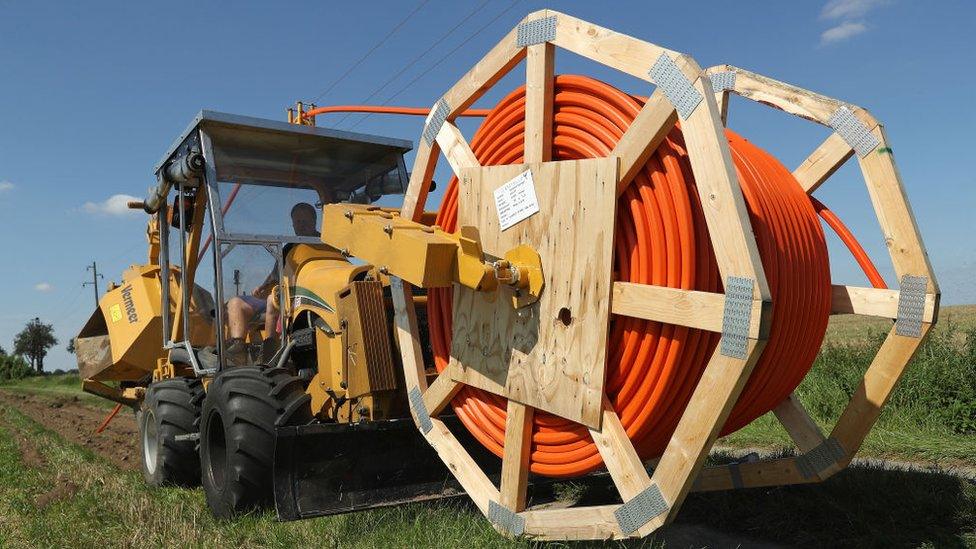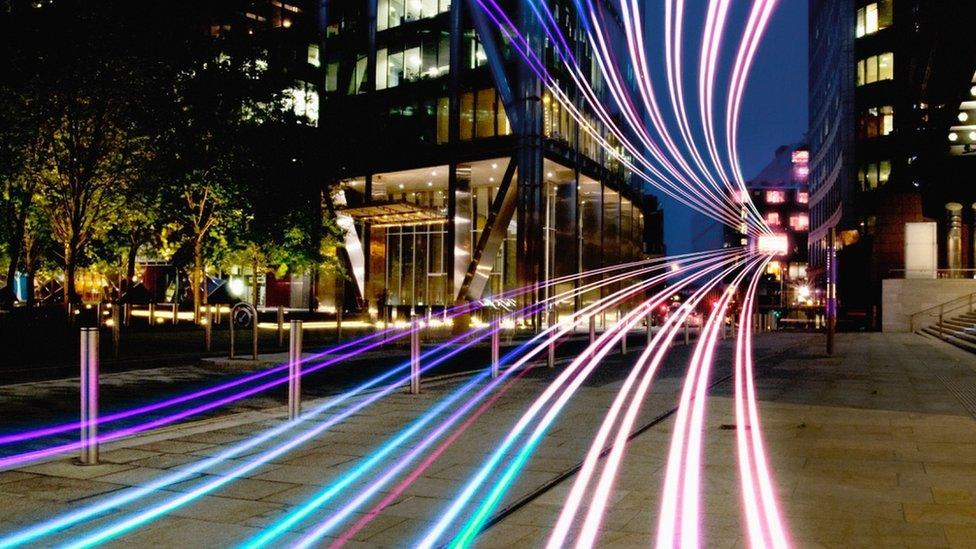One in four UK homes 'can access 1Gbps broadband'
- Published
- comments

The government's ambition to give even remote areas access to ultra-fast broadband is proving hard to realise
Broadband speeds of up to 1Gbps are now available to one in four homes across the UK, Ofcom has said.
But 600,000 people in towns and more rural locations remain restricted to 10Mbps or less.
This year has seen increased demand for faster connections, with many people having to work from home.
The government had promised everyone access to broadband speeds of up to 1Gbps by 2025 - but that target has been cut to 85% of homes.
'More difficult'
Nearly eight million UK homes can access 1Gbps broadband, according to Ofcom's Connection Nations report, external.
Northern Ireland has the highest availability, with more than half of homes able to access faster services.
In Scotland, 42% have access.
"For millions of families this year, life during lockdown would have been even more difficult without reliable broadband to work, learn, play and see loved ones," Ofcom network and communications group director Lindsey Fussell said.
"So it is encouraging that future-proof gigabit broadband is now available to a quarter of homes.
"And we expect that to rise even faster in current months."
Coronavirus pandemic
According to the report, the average home consumed a third more data than last year, with data usage increasing by 225% over the past four years.
The coronavirus pandemic had driven this surge but also exposed the divide between people able to access fast connections and those who could not, Uswitch head of regulation Richard Neudegg said.
"There are still too many homes without even the most basic broadband speeds," he said.
"In rural areas, a fifth of households cannot get superfast, which, with a minimum download speed of 30Mbps, is a fraction of full-fibre speed."
But Assembly consultancy founder Matthew Howett said: "As end-of-term reports go, it's a pretty encouraging one .
"More households are taking higher-speed packages than last year.
"But take-up of gigabit-capable broadband is still fairly low."
Fibre-optic connections
The faster speeds are delivered either via:
the enhanced cable network developed for transmitting TV
fibre-optic connections that replace the copper wires installed for the telephone network
Virgin Media offers cable services, while Openreach, a spin-off from BT, has responsibility for the vast majority of fibre-optic connections.
There are also a handful of other providers offering bespoke fast-broadband services in various regions of the UK.
Mobile services
The report also found a huge surge in the amount of mobile data consumed this year.
Traffic was up 42% on last year, according to Ofcom.
"Tariffs containing increasingly generous and sometimes unlimited data allowances, combined with the need to stay in touch with friends and family during lockdown, drove the trend," research company CCS Insight director Kester Mann said.
The rollout of 5G networks would increase average monthly data usage to 45GB per person by 2025, he added, the equivalent of watching 15 hours of high-definition films on Netflix or streaming 360 hours of music on Spotify.
Related topics
- Published15 November 2020

- Published25 November 2020
